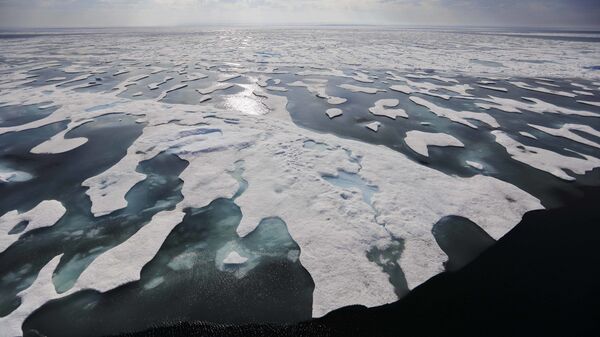The findings indicated that if carbon emissions are not reduced, the Arctic Ocean will absorb 20% more carbon dioxide during the 21st century than previously estimated.
“This increased rate of Arctic Ocean acidification, combined with rapidly changing physical and biogeochemical Arctic conditions, is likely to exacerbate the impact of climate change on vulnerable Arctic marine ecosystems,” the study’s abstract reads. The research was completed by climate scientists at the University of Bern in Switzerland and the École Normale Supérieure in Paris.
The findings were based on different climate models that predict carbon uptake in the Arctic Ocean. The researchers found that there is a strong correlation between Arctic sea densities and deep-water formation. Deep waters are formed when cold temperatures and salinity cause denser water to sink to the bottom of the ocean. The researchers found that the correlation between Arctic sea surface densities and deep-water formation is linked to carbon uptake.
“Here we identify an emergent multi-model relationship between the simulated present-day density of Arctic Ocean surface waters, used as a proxy for Arctic deep-water formation, and projections of the anthropogenic carbon inventory and coincident acidification,” the abstract explains.
Greater deep-water formation results in “enhanced transport of carbon into the ocean interior and therefore enhanced acidification,” according to a Thursday news release from the researchers.
"This leads to substantially enhanced ocean acidification, particularly between 200 and 1000 meters," study co-author Jens Terhaar noted in the release.
According to an article in the journal Science, studies have indicated that increasing ocean acidification can negatively impact marine organisms that rely on calcium carbonate to build their shells and skeletons.
“Marine creatures could get another shock as the ocean absorbs ever-greater quantities of the gas - expected to rise two to three times over pre-industrial levels during the next 50 to 100 years - creating more acidic conditions in the sea that diminish the concentration of carbonate needed for shell and skeleton building,” the article warns.

